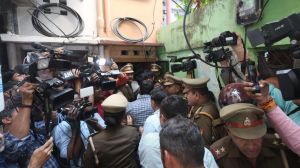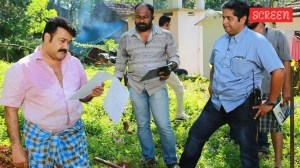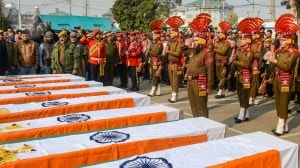Why the hurry,and do we really need more laws,ask legal luminaries,activists
India needs more laws or can do with better implementation of the laws that exist
Coming out in support of a meaningful Lokpal but expressing strong reservations on aspects of the reform being suggested via the Jan Lokpal Bill,participants at a day-long consultation on the proposed legislation today freely expressed a range of opinions and their disagreements with the Bill.
Speaking at a meeting called by the National Campaign for Peoples Right to Information (NCPRI) and the Nehru Memorial Museum & Library (NMML),former Chief Justice of India J S Verma,speaking on the Bill for the first time in public,disclosed that he had been part of the consultation process by the drafters initially but had conveyed my disagreements to them. I have always believed that judges are accountable,but the means of how that accountability is to be enforced is debatable.
He said one should ask if India needs more laws or can do with better implementation of the laws that exist. The CVC and CBI were set up as autonomous institutions,as interpreted by the courts. But what happened to them? Similarly,if implementation of the Lokpal Bill is faulty,what is the point of a new law?
Justice Verma pointed to fears of the impact of this proposed law being at variance with the Constitutional scheme of things. He said he hoped this exercise did not end up wanting to amend the Constitution without the procedures prescribed.
He said the mechanism to check malpractices in the judiciary could not be short-circuited by bringing them all under the Lokpal,as there were Constitutional procedures on how judges were to be held accountable or removed. On the point of including the office of the Prime Minister,Justice Verma was in favour of the political process to make the PM accountable.
Justice Mukul Mudgal,former Chief Justice of Punjab and Haryana High Court,maintained that corruption coming under focus is a good thing,but we cannot bypass the Constitution,need to strengthen processes.
A paper citing concerns over the Jan Lokpal Bill it was authored by Justice A P Shah,former Chief Justice of Delhi High Court,and co-authored by Venkatesh Nayak of the Commonwealth Human Rights Initiative flagged several issues: problems of combining investigation and prosecution powers in the capital; the process of appointing the Lokpal; the wisdom of videography of the selection process; possible encroachment on judicial independence; and,the Lokpal fund being 10% of monies confiscated.
The paper also expressed concern over the review of executive powers envisaged and the enormous concentration of powers of investigator,prosecutor and enforcer of its will creating a gigantic institution.
Historian Mridula Mukherjee said the activists are talking of August 15 as the deadline,but that may bind us more than free India. Even pre-1947,the commissions,the all-White commissions that came,allowed for wider consultation and more time before legislation and reforms were debated and thrashed out.
Members of the Anna Hazare-led India Against Corruption were also present,represented by activist Kamal Kant Jaswal and RTI activist S C Agarwal.
Jaswal defended the Bill: There should not be hesitation to amend the Constitution,if required,to tackle corruption as it had already been amended more than ninety times… successive scams forced attention on this issue,and the Jan Lokpal Bill,which has already seen twelve versions,is willing to accommodate all these issues.
Shekhar Singh of NCPRI said: There are many divergent views even among us,but we all agree that what is required is simultaneous push on a basket of issues,such as electoral reforms,judicial accountability,the Lokpal and administrative reforms,and not all powers being vested in one big institution.
Mazdoor Kisan Shakti Sangathans Aruna Roy,who heads the National Advisory Council group mandated to look at transparency,governance and accountability,said: There will be multiple consultations. We cannot be boxed in by anyone,either government or non-government forces. We will input the various issues of concern with the present process to the government.
Chief Information Commissioner,Satyanand Mishra,speaking in his personal capacity,said the Bill was staggering in scope possibly requiring all Bhawans and officers within to be engaged in vigilance,compliance and related activities.
He sketched a scenario where it may be possible that the PM and his cabinet are being investigated,then someone questions the Lokpal who may also be investigated simultaneously resulting in circularity and deepening of cynicism about the system. Are we looking for a Yudhisthira who will then be paratrooped to sort all this out? He spoke of fears of wanting to supplant the system with a surrogate government… rendering the whole idea impractical and unworkable.
Former CVC Pratyush Sinha,who was part of the IAC movement until November last year,spoke of his reservations with the proposed system that made him withdraw. The proposed Bill,he said,was based on a simplistic analysis of corruption. He cautioned against trying to push it through quickly,when it needs a detailed discussion.



- 01
- 02
- 03
- 04
- 05



























